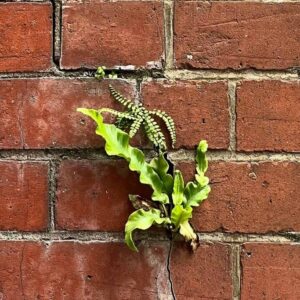
Earlier this year, the National Endowment for the Arts (NEA) began requiring grant recipients to attest they were not promoting “gender ideology” or operating any programs that contributed to diversity, equity, or inclusion. As an independent agency of the federal government, the NEA announced this new requirement for artists in response to anti-DEI executive orders from the Trump administration.
The requirement was later revised to stipulate that the agency would be reviewing applications on a case-by-case basis, “evaluating projects that promote gender ideology based on the existing statutory criteria at the final stage of application review.”
The agency needed to focus “on projects that reflect the nation’s rich artistic heritage and creativity as prioritized by the [Trump] Administration.”
Then, on September 19, a federal judge ruled that this NEA requirement was in violation of the First Amendment and could not be implemented. In his ruling, Judge William E. Smith, senior district judge for the District of Rhode Island, wrote that the NEA had been created by law with specific regulations requiring “grants are awarded on talent alone, irrespective of the artists’ viewpoints or the messages conveyed in their works.” The challenge to the anti-DEI requirement had been brought by a group of theater arts organizations, including Rhode Island Latino Arts and National Queer Theater, with support from the American Civil Liberties Union.
But for some artists, the ruling comes too late.
Simply Gone
On a Friday afternoon in late August, hundreds of writers who had applied to the 2026 Creative Writing Fellowship from the NEA, an individual artist program which had awarded up to $50,000 for writers of prose and poetry, received an email alerting them that the NEA was canceling the program, effective immediately. The reason? The agency needed to focus “on projects that reflect the nation’s rich artistic heritage and creativity as prioritized by the [Trump] Administration.” Those priorities included “AI competency. ”
One morning this spring when I checked the website, my NEA application was simply gone.
I wasn’t one of the writers who received this email, although I did apply for the NEA grant in 2026. I believe my application was discarded much sooner. After completing it, I received a confirmation email and an online tracking number from the NEA, which I used periodically to check on the status of my application via the grant website.
My application was in progress. Until it wasn’t. One morning this spring when I checked the website, my NEA application was simply gone. The website told me that my confirmation number didn’t exist, though I had been using it to track my application for months.
Most likely, the Literature division of the NEA was already in shambles by then. May 30 was the last day of work for the entire staff, who announced their departure in an emotional public letter. It’s possible the agency no longer had the bandwidth to keep track of applications or were deleting them in advance of sending that mass email.
It’s also possible someone in the new administration Googled me. My last book included a main character who is Hard of Hearing, as I am. I suppose this identity could have qualified me as ‘furthering a DEI agenda.’
Honesty in the Pursuit of Art
This was the first year I was eligible to apply for the NEA, after receiving the award in 2015. Historically, the rules stipulated that artist awardees must wait 10 years after receiving the grant before applying again.
In 2015, I had a small child and was newly divorced, living alone with my son in rural Appalachia. Though the application for the Creative Writing Fellowship had the reputation of being a lot of work, I always believed it was worth it to apply because it was a large grant with no application fee: a rarity in the artistic world.
The application did not require letters of recommendation either, a gatekeeping barrier many studies have found to be unjust and implicitly biased—and the award money came with no stipulations. Just write, I remember a staff member advising me. The money is supposed to be used to help you live.
I worked on my NEA application at Burger King. In my rural town, it was the rare place with free and dependable Wi-Fi. There was a large indoor playground where my son could play while I worked. The employees grew to recognize us. To save money, I would buy my child a kid’s meal and nothing for myself. Soon some employees started sneaking me french fries and coffee. It was at Burger King where I learned I had won an NEA Creative Writing Fellowship for prose, after years of trying.
Support for artists has always been a struggle in this country. The NEA was a rare light.
The year I won, I had decided not to hold back. I had decided to apply with the most intense, emotional, and personal work I had; to take a huge risk with relatively new and experimental work. And it paid off.
Receiving the NEA grant taught me to go for it. It taught me to be as real and true to myself as I could be. It taught me the value of honesty in the pursuit of creative work, and of taking risks, which for me has become the true meaning of art: change and experimenting.
A Rare Light
Support for artists has always been a struggle in this country. The NEA and its support was a rare light: a windfall large enough to keep an artist going with long-term expenses. I knew artists who used their NEA grant as the down payment on their first home, or bought a car for their family.
I did live off my NEA grant. I used the money for food, for rent, for babysitters to watch my child while I wrote—sometimes in my car so I wouldn’t have to purchase coffee or a meal in a coffee shop. The NEA’s support enabled me to write my first novel. It bought me time, a precious resource and a rarity for artists, especially those balancing earning a living with caregiving.
Whether the Literature division of the NEA comes back, or whether artists and art organizations in other disciplines continue to be able to receive support, we have received the message that art is not welcomed by this administration, let alone art that pushes barriers, that attempts to disrupt, that draws attention to injustices and attempts to make change—in other words, what art is meant do.
I will miss the books that will not be written because this support is gone. But I know there are still single moms writing at Burger King or in their cars. I know there are kind employees bringing them food. And I know there are children who notice their parents striving to make art, and who learn from their example that creative expression does matter, whether it is supported or not. I root for us still.
As the former staff of the Literature division of the NEA wrote in their farewell letter, “Your words…have lifted us toward the light. You remind us to slow down and be awed, to feel that unique joy in wondering about what we don’t know. You allow us to enter the depths of love, fear, sadness, anger, and connection, and to understand the hardships of others. You allow readers to discover themselves in your pages, and you connect us with our past and have the power—the superpower—to guide our way toward a hopeful future.”
For More on This Topic:














